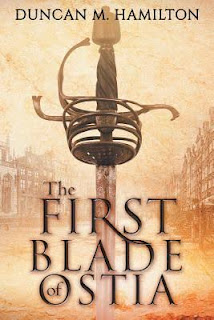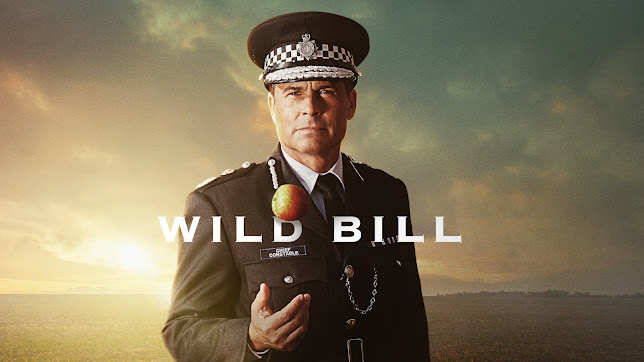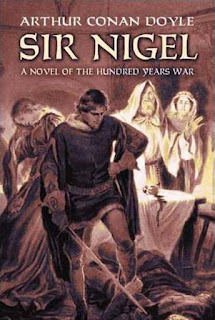Fantasy Three... Well Maybe One... Musketeer
I saw a New York times write up of the "Society of the Sword" series (well, I think it was the NYT) by Duncan M. Hamilton, it read like this: "The Three Musketeers meets Game of Thrones." I was thinking, "I wish I had written that." It's certainly apropos. The problem is, the write up left out the book to the left, "The First Blade of Ostia," which is the prequel to the first book in the series, "The Tattered Banner."
The story follows Bryn Pendollo, a young man who dreams of becoming a master fencer, and the title of "First Blade of Ostia." As I was reading through the prologue, it reminded me of how much I wanted to be like Dick Butkus or Randy White on the football field when I was a kid. The world in which this story is set focuses that kind of hero worship, or idolatry, on great master fencers who compete in the arena. They are celebrated martial artists, masters of their craft, who earn riches and recognition through their prowess, and honor, in the arena.
Bryn comes from a somewhat underprivileged family, but his goal of becoming a great fencer in shared by his family, or at least supported by his family. They work to send Bryn to the Fencing Academy. Bryn throws his all at his craft and indeed succeeds becoming the fencer he wants to be. The question becomes, is it a life he can manage, or perhaps compete with, or in for that matter? As the exposition closes, we follow Bryn and one of his school mates as they begin their journey to become the best fencer in the land and earn the title "The First Blade of Ostia."
I selected this title first for some odd reason, I know that Hamilton wrote this book after he had completed the series. It was a hard choice for me, having read through Wolf of the North. I would say that Hamilton is a master at pulling your heart strings, and having his protagonists expertly pull defeat from seeming victory on a regular basis. The way he does this can infuriate you as a reader, in a good way though. Hamilton does a good job of exposition in his stories and really connecting you to his leads, so when they experience success, failure, betrayal, you will feel those moments too. Unfortunately, all too often, they turn out in exactly the opposite way you want them to. I will say that Hamilton does provide redemption at the end of most of his stories, and the redemption is sweet, if somewhat unexpected.
The irony of selecting this book is I didn't note the author until after I had purchased it. Wolf of the North exasperated me, maybe I am just an old sap, but again, Hamilton really punches you a lot. When I got the book and saw the author I held off on starting because I wasn't again ready for the ups and downs the author puts you through. With that said, I love Dumas' "Three Musketeers," I have read and listened through that more times than I can count, so I was looking for something along a similar vein. I was not disappointed.
One of the neat things about Duncan Hamilton's work is that each series that he writes takes place in the same world, at different timeframes, and there are little references to each in the others. With that said, you can read them as stand alone works, you don't have to read any of the other series in order to connect with the current one. The same can be said for the "First Blade of Ostia."
As I think about the description given to this series by the Times, I think my take on the "First Blade of Ostia" is, "The Three Musketeers" meets "Game of Thrones," with a little "Cyrano de Bergerac" thrown in. Give it a shot, I think you will enjoy.




Comments